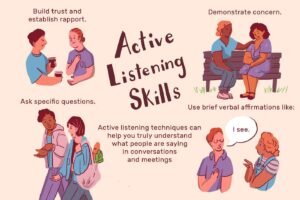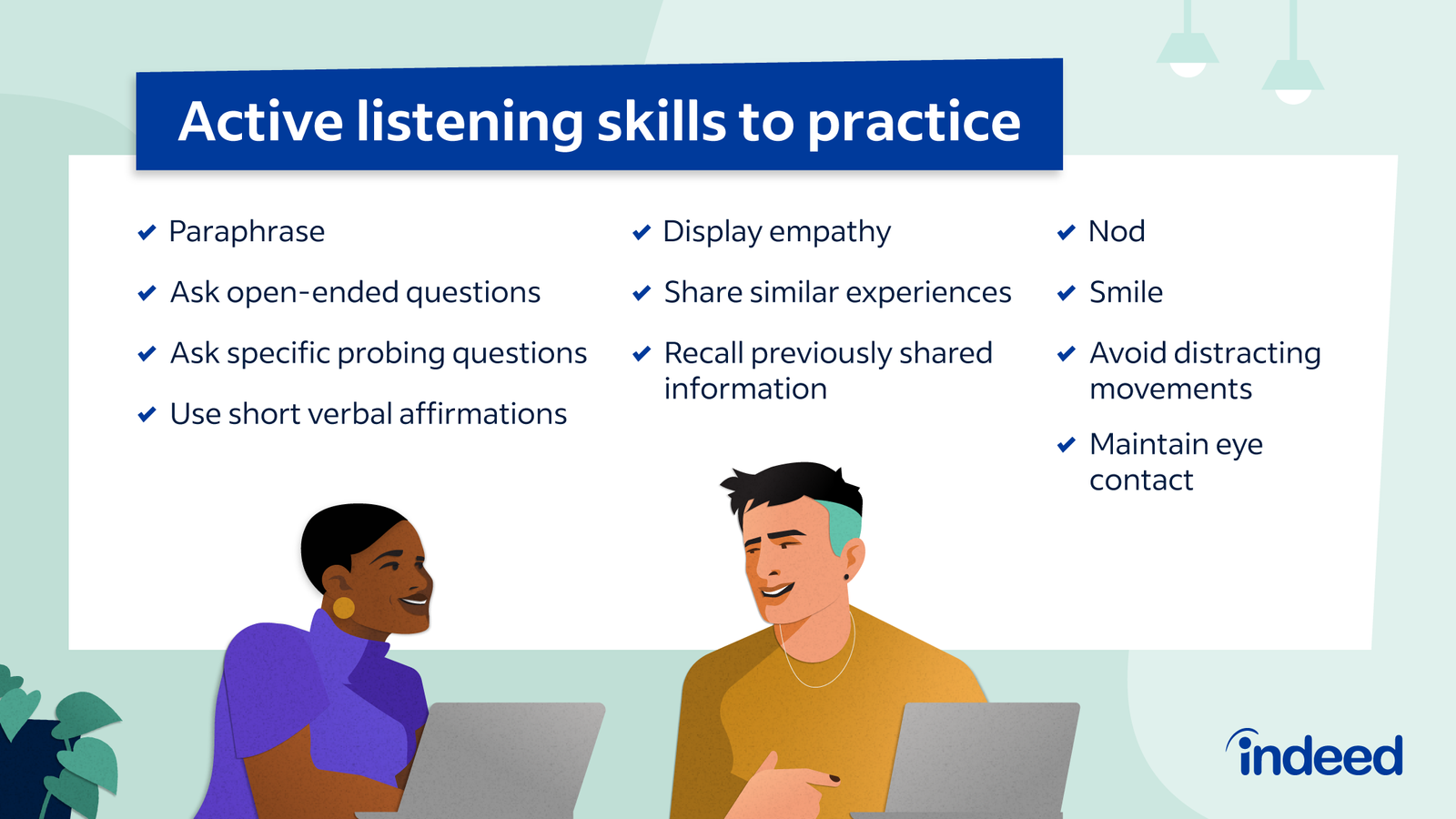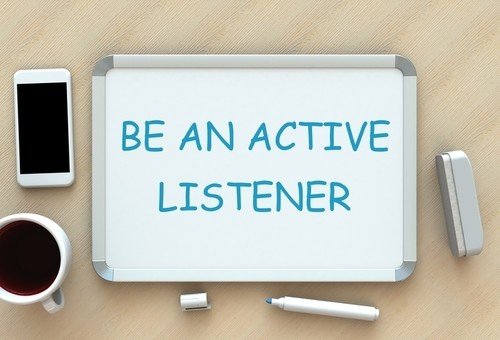In the fast-paced environment of modern workplaces, communication is key. Yet, it’s not just about speaking; how we listen plays an equally crucial role. Active listening is a powerful tool that can significantly enhance workplace relationships, leading to better collaboration, increased trust, and a more harmonious work environment. In this article, we’ll explore what active listening is, why it’s important, and how it can transform your workplace relationships.

What Is Active Listening?
Active listening is more than just hearing words; it involves fully engaging with the speaker, understanding their message, and responding thoughtfully. This type of listening requires concentration, empathy, and an open mind. It means setting aside distractions, focusing on the speaker, and providing feedback that shows you’ve understood their perspective.
Active listening is a skill that can be developed and refined over time. It involves not only paying attention to the words being spoken but also noticing nonverbal cues, such as body language and tone of voice, that can provide additional context to the message.
The Importance of Active Listening in the Workplace
In a workplace setting, active listening is crucial for several reasons. First, it fosters better communication by ensuring that messages are accurately received and understood. This reduces the likelihood of misunderstandings, which can lead to conflicts or errors.
Second, active listening builds trust between colleagues. When employees feel heard and understood, they are more likely to trust their coworkers and supervisors. This trust is the foundation of strong professional relationships and a collaborative work environment.
Finally, active listening promotes inclusivity and respect. By genuinely listening to others, you demonstrate that you value their input and are open to diverse perspectives. This is especially important in today’s diverse workplaces, where different viewpoints can lead to innovative solutions and ideas.
How Active Listening Enhances Collaboration
One of the primary benefits of active listening in the workplace is its ability to enhance collaboration. When team members practice active listening, they are more likely to understand each other’s viewpoints, identify common goals, and work together effectively.
For example, in a team meeting, an employee who actively listens to their colleagues’ suggestions is better equipped to contribute valuable insights that move the project forward. By acknowledging and building on others’ ideas, active listeners can help create a more dynamic and productive team environment.
Strengthening Workplace Relationships Through Empathy
Active listening also strengthens workplace relationships by fostering empathy. When you actively listen to a colleague, you’re not just hearing their words; you’re also trying to understand their emotions and motivations. This empathy can help you respond in a way that is supportive and constructive.
For instance, if a coworker expresses frustration during a conversation, an active listener might respond by acknowledging their feelings and offering assistance or a solution. This empathetic response not only addresses the issue at hand but also deepens the relationship by showing that you care about your colleague’s well-being.
Building Trust Through Active Listening
Trust is a vital component of any successful workplace relationship, and active listening is one of the most effective ways to build it. When employees feel that their voices are heard and respected, they are more likely to trust their peers and supervisors.
Active listening demonstrates that you are reliable and committed to understanding others’ perspectives. Over time, this consistency in listening and responding thoughtfully builds a foundation of trust that can lead to stronger, more cooperative relationships in the workplace.
Practical Tips for Practicing Active Listening
To practice active listening effectively, consider the following tips:
- Maintain Eye Contact: Show that you are fully engaged in the conversation by maintaining eye contact with the speaker.
- Avoid Interrupting: Allow the speaker to finish their thoughts before responding. Interrupting can make them feel undervalued.
- Ask Clarifying Questions: If something is unclear, ask questions to ensure you fully understand the message.
- Provide Feedback: Summarize or paraphrase what the speaker has said to show that you are actively processing their message.
- Stay Present: Avoid distractions, such as checking your phone or thinking about your response, while the other person is speaking.
Conclusion
Active listening is a powerful tool that can enhance workplace relationships by improving communication, building trust, and fostering empathy. By fully engaging with your colleagues during conversations, you can create a more collaborative and supportive work environment. As you develop your active listening skills, you’ll likely find that your workplace relationships become stronger and more productive, benefiting both your career and the overall success of your team.




